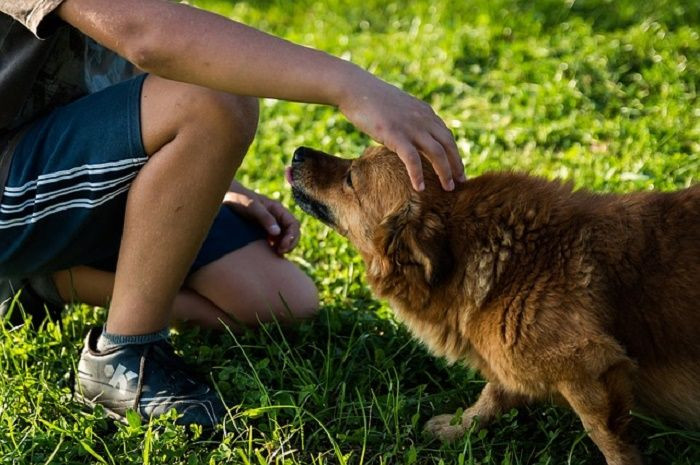Mental Health: Adolescents With Psychiatric Disorders May Benefit From Animal-Assisted Therapy

Animals are an important part of many people’s lives — their mere presence can contribute to human's happiness, making their life more meaningful. However, animals may do more than just provide companionship.
New research suggests they can improve emotional, social and cognitive functioning in adolescents with severe mental disorders. The study, published in Complementary Therapies in Clinical Practice, examined the effects of animal-assisted therapy, which is an intervention involving guided interaction between a patient and a trained animal. The purpose of this intervention is to aid a patient’s recovery process.
"The young patients who feel fragile, needy and dependent on others in the hospital context, can experience themselves as caretakers of someone else in the [animal-assisted therapy] environment," researchers said, according to The Pacific Standard. "This experience can improve their sense of self-agency and self-cure, and these positive effects are not only limited to the human-animal bond, but can be extended to the patient’s global functioning and to the entire process of care."
For the study, researchers recruited 34 hospitalized patients admitted for acute psychiatric disorders. They were divided into two groups: one would participate in an animal-assisted therapy intervention, and the other would receive standard treatment; both groups continued to receive their routine care. Of the cohort participating in the study, 65 percent were experiencing an eating disorder, 21 percent a mood disorder, and 9 percent had schizophrenia.
The animal-assisted therapy group had a 45-minute session once a week, where they interacted with dogs from Guide Dogs for the Blind in Tuscany. During these sessions, adolescents were able to partake in activities that involved "getting to know the animal and its handler, grooming, cleaning basic obedience, and agility," Pacific Standard reported
Researchers saw an improvement in social and psychological functioning among patients receiving animal-assisted treatment, as well as an increase in school attendance and a reduction in time spent in the hospital compared to those not in therapy with dogs.
"One possible explanation for this success is the role of the animal as a catalyst in the therapeutic process," researchers said, according to The Pacific Standard. "Animals may represent a valid help in therapeutic contexts thanks to their ability to catalyze social interactions and to create a more relaxed environment."
Previous studies have linked owning a pet or animal interaction with many health benefits, such as reduced allergy risk, lower stress levels, and a better sense of well-being.
Although more research is needed to support these results, researchers believe animal-assisted therapy can have a positive effect on both teens' therapeutic progress and the recovery process.
Source: Stefanini M, Martino A, Allori P, Galeotti F, Tani F. The Use Of Animal-Assisted Therapy In Adolescents With Acute Mental Disorders: A Randomized Controlled Study. Complementary Therapies in Clinical Practice. 2015.
Published by Medicaldaily.com



























